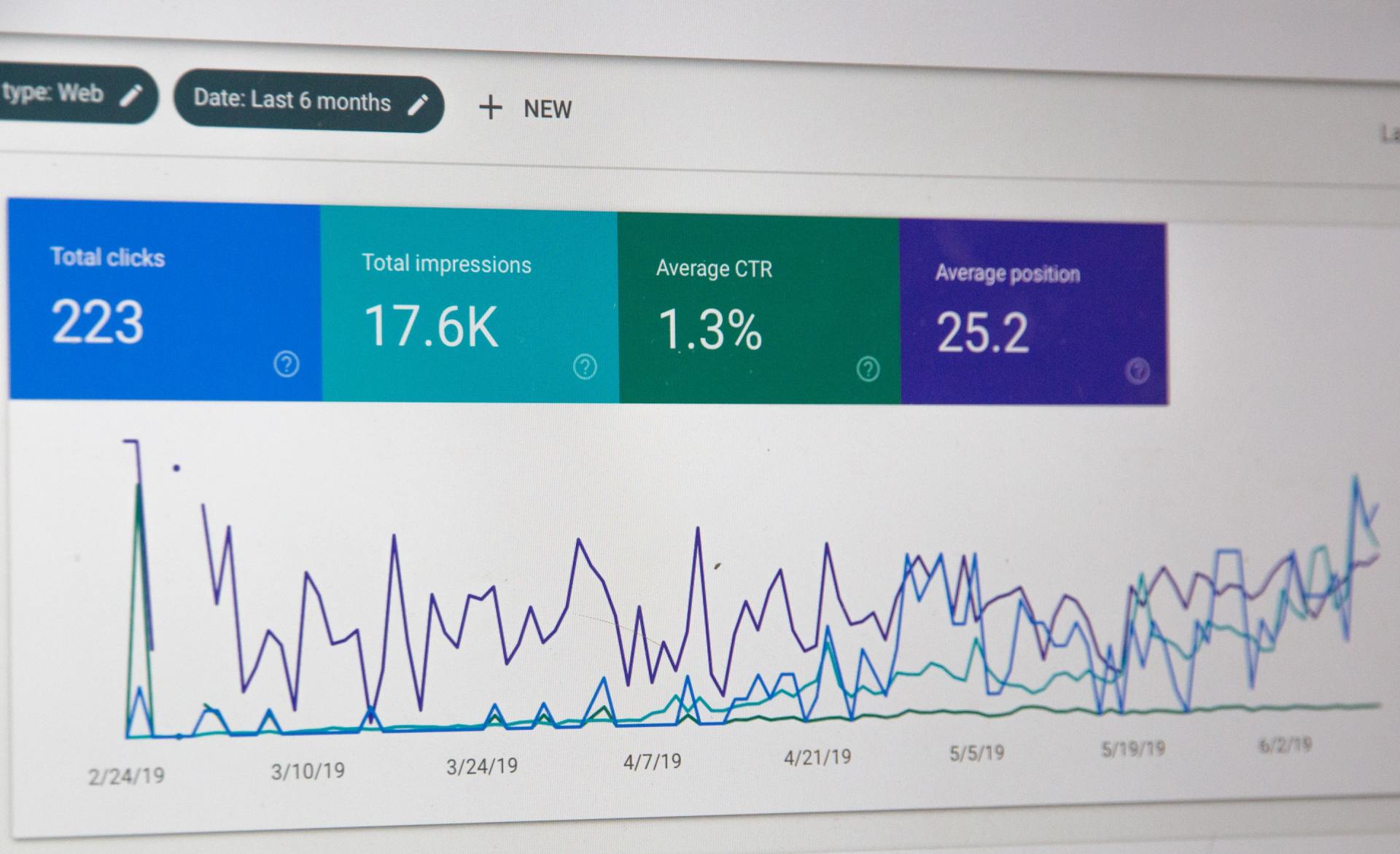Small Business Statistics Every Entrepreneur Should Know
In this day and age, there are so many outstanding examples of successful businesses.

Over the last few years, there's been a rising interest in entrepreneurship as a desirable alternative over the typical 9-5.
Many people all over the globe dream of
starting their own businesses as a way to control and secure their financial futures. Additionally, the need to break free from traditional workplace rules, politics has driven this uptake in entrepreneurship and what it offers.
Regardless of how overwhelming and complicated starting a new business may seem, nothing is as attractive as the ability to control your own time and goals. Nevertheless, the best approach to avoid any feelings of being overwhelmed is to break down the process of starting a business into small manageable steps.
Whether your business is based online or you want to own a brick-and-mortar business, having the proper knowledge at your fingertips will help you manage your risks and opportunities better.
The following statistic will give direction, show you what you need to expect, and give you a better understanding of the factors that influence your business.
How Many Small Businesses Are There in the U.S.?
According to the Small Business Administration (SBA), there were 30.7 million small businesses in the U.S. in 2019.
So which businesses fall under the small business category?
Well, the SBA defines a small business as a company that has less than 500 employees. So many high-valued start-ups that have mushroomed in the U.S. over the last few decades will fit into this definition.
Interestingly enough, this definition of what constitutes a small business differs across the world. For example, in the European Union, businesses with fewer than 50 employees are considered small businesses. For comparison, if a firm has less than 15 employees in Australia, it's regarded as a small business.
In the American context, the data shows that most businesses have fewer than 500 employees. Within this category, those businesses with less than 100 employees account for 98.2%. In comparison, those with fewer than 20 employees make up 89% of all companies in the U.S.
How Many Jobs Are Created by Small Businesses?
The sheer number of small businesses in the U.S. means that they generate most of the jobs in the country. The SBA accredits small companies with the creation of at least 1.5 million jobs every year. In fact, 64% of new jobs in the U.S. come from small businesses.
Over the past years, the data shows that small businesses have always been a crucial part of the growth of the U.S. economy. There are many benefits that small businesses offer, such as:
- Great job opportunities for many Americans
- Financial growth
- Unique products and services
So it doesn't really matter if small businesses turn into big corporations; they ultimately contribute to economic growth.

Small and Medium-Sized Businesses Are Major Contributors to Global Economic Growth
According to a 2019 report by SalesForce, over 90% of the business population comprises small- and medium-sized businesses, also known as SMEs. And as we've already discussed above, small companies account for a large number of jobs.
Over the last few decades, SMEs have continued to generate employment. They have contributed to innovation across various industries, technologies, and countries. The rise of technology has improved connectivity. SMEs have better access to global markets and knowledge of networks nowadays.
Overall, SMEs contribute significantly to the growth of the global economy by providing employment, fostering innovation, and promoting sustainable industrialization.
What Is the Most Common Reason People Open their Own Business?
The reasons people decide to open their own businesses vary. Among the most common reasons people give for opening a business, at least 55% said they opened their own business because they wanted to be their own boss.
The next popular reason people gave for starting their own business includes wanting to pursue their passions. According to the survey by Guidant Financial, 39% of people interviewed chose to pursue their own passion as their primary motivation.
The same study also found the following as facts as common reasons:
- Dissatisfaction with corporations
- Seeing an opportunity to start their own business
- A lack of preparation for retirement
For most people, starting their own business gives them the freedom to be their own boss and be in control of their time. It gives you the freedom to make decisions about your work/life balance. You're able to work how, when, and where you want.
While there are many reasons why people worldwide decide to pursue entrepreneurship, the top motivations seem to be financial freedom and independence from their current workplace environments.
COVID-19 Hits Small Businesses Hard
One thing that impacts small businesses is uncertainty, and the COVID-19 has been a thorn in the side of most businesses, small or big.
The pandemic has hit many small businesses hard. According to a 2020 Facebook report,
nearly a third (31%) of small businesses
thriving in 2019 are no longer operational.
When the pandemic hit in March 2020, over 70% of U.S. small businesses shut down when the U.S. became the center of the virus. Over 60% of these small businesses were closed by order of the government or health authorities in a bid to curb the spread of the virus.
Some small business owners took measures to adapt to business in the new environment to cope with the new reality. Many of them increased their online presence and activities to try and stay connected to their client base and keep their business afloat.
More than half (51%) of small businesses reported an increase in interaction with clients over the internet. Additionally, 36% of personal businesses that used online tools before the pandemic are now also conducting all their sales online.
Looking into the future, 28% of these small business owners reported that cash flow will be their most significant obstacle in the near future. As the economy stalls, consumer demand also dips significantly for products and services not considered necessary for survival.
Future Generations Are More Likely to Create a Side Business
The public and astronomical success of start-ups and small businesses like Airbnb, Amazon, and Apple have increased the thirst for entrepreneurship.
Statistics show that the new generation of entrepreneurs is more likely to have a side-hustle. In fact, Millennials and Gen Zers are reported to be 188% more likely to focus on creating a side business compared to traditionalists and Baby Boomers.
Compared to Baby Boomers, Millennials and
Gen Zers are 48% more likely to have started a business. They liked and were passionate about an idea they had and decided to bring it to the marketplace.
This shows just how significant the start-up boom and success of Silicon Valley has been on Millennials and Gen Zers. Moreover, thanks to how much easier it is to start a business, the new generation is much more comfortable becoming their own bosses.
Of course, we cannot discount the impact of the rise of online marketplaces, low code, no-code, and outsourced development. It's become faster and easier to run a business from the comfort of your own home.
What Percentage of Small Businesses Fail?
One of the biggest fears that people have about entrepreneurship is the risk of failure. And the fear is not unfounded. The startling reality is that most small businesses don't do well. In fact, over two-thirds of small businesses never turn a profit, and over 50% of small enterprises fail within the first 12 months.
Moreover, 95% of small start-ups fail within the first five years. It's clear, having a successful business requires much more than just a great idea. All the pieces need to come together at the right time. Rarely does this happen without effort.
But don't let these statistics discourage you from starting your own business. In fact, you should use this data as motivation. If you know how and why the majority of small businesses fail, you can come up with a fool-proof plan to overcome the potential risks you may face.
Of course, it's impossible to completely eliminate all risks but forewarned is forearmed. You'll have the power to know what to do in different scenarios.
What Is the Major Reason That New Businesses Fail?
The primary reason that new small businesses fail is because of the lack of market demand. According to C.B. Insights, 42% of small businesses fail because of this reason. So to avoid falling into the same trap, ensure that you do your research and that your business addresses a real need in your target market.
The next most common reason new businesses fail is that they run out of money before becoming profitable. The data shows that close to 29% of new businesses failed because they just ran out of money.
Other reasons for the failure of small businesses include:
- Not finding the right people or team to work with
- Losing to competitors in the industry
- Unfriendly products or services
- Inability to find a workable cost structure
Suppose we were to carefully analyze the reasons why new businesses fail. In that case, it is clear to see that it's a combination of customer-centric reasons and a lack of resources. These two are the building blocks of any successful small business.

What Is the Major Challenge Small Businesses Face?
The first few years of any new business are always the most challenging. How you handle them often dictates how successful your business becomes.
One of the significant challenges that small businesses face is the lack of reliable and quality labor. In fact, 52% of people interviewed by CNBC in 2019 stated that the most challenging problem for small businesses was labor quality.
Small business owners report that it’s hard to find qualified individuals to hire. For businesses with more than 50 employees, 63% of owners believe it’s become harder to find qualified hires.
Aside from this challenge, small business owners are encountering financial problems. As smaller corporations don't have access to funds and neither do, they have the advantage of being backed by wealthy investors. It's often a struggle to figure out how to manage their finances.
Top Digital Marketing Channels Among Small Business Owners
Marketing is an essential part of small business strategies. According to the Manifest,
64% of small businesses that participated in the survey used social media in their marketing strategy. It seems social media is a preferred favorite for small business owners.
The same study shows that nearly all small businesses advertise. In most cases, this advertisement uses digital channels compared to traditional mediums like T.V., magazines, and newspapers.
After social media marketing, the next most popular advertising method was online marketing which accounted for 49%, followed by print marketing at 36% and T.V. at 22%.
So why is digital marketing the top marketing channel among small business owners?
Small businesses rely heavily on digital advertising channels because they can target and reach their customers more effectively. Small businesses can reach people who would likely be interested in their products. In contrast, traditional channels are aimed at a broader audience.
Statistics show that social media marketing can be an effective tool for small businesses. In fact, 73% of marketers believe that their social media marketing campaigns have been somewhat or very effective for their business.
Conclusion
Without a doubt, the years 2021 and beyond are going to be very significant for small businesses. With the competition increasing left, right and center, these statistics should help you find your way and assist you with better decision making.
Whether you're a small business owner or you are toying with the idea of starting one, just keep in mind the challenges you're likely to face. Additionally, staying on top of current trends will help you tackle difficulties more proactively instead of being reactive.










